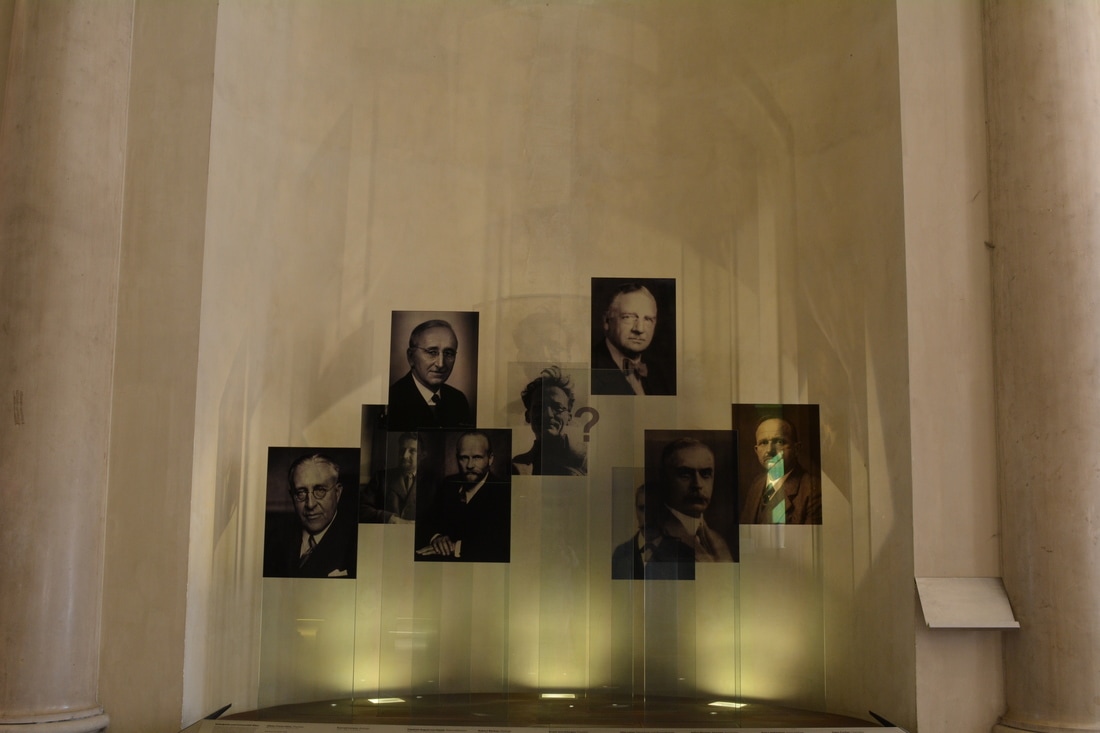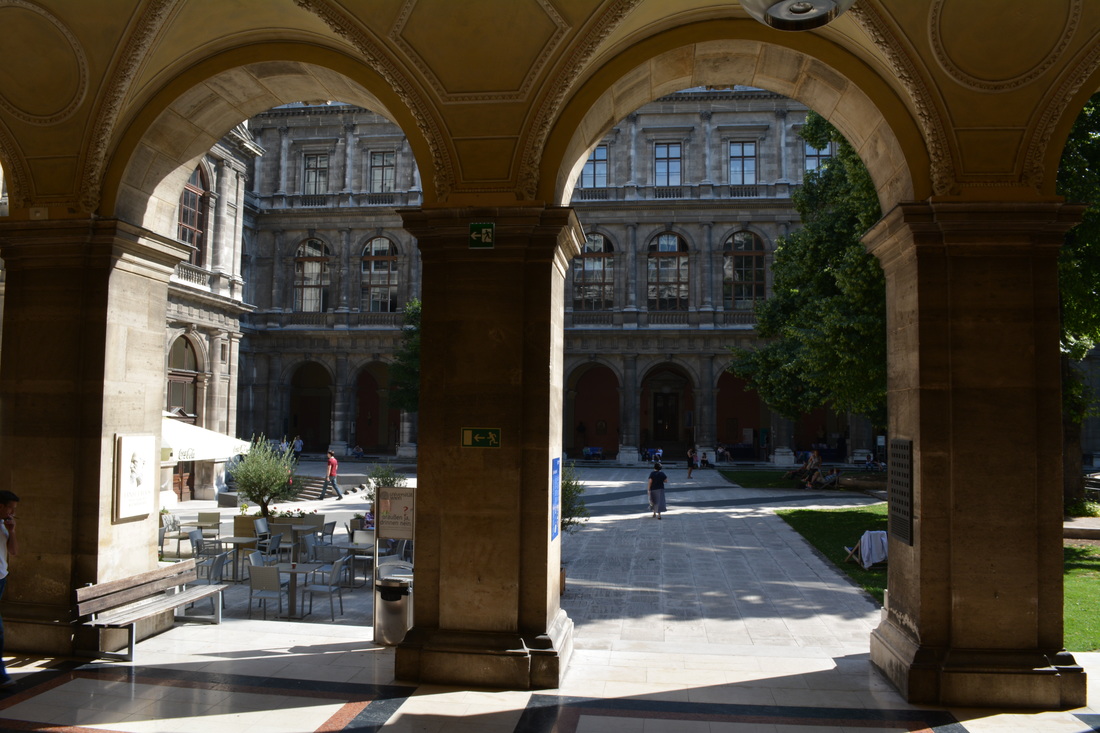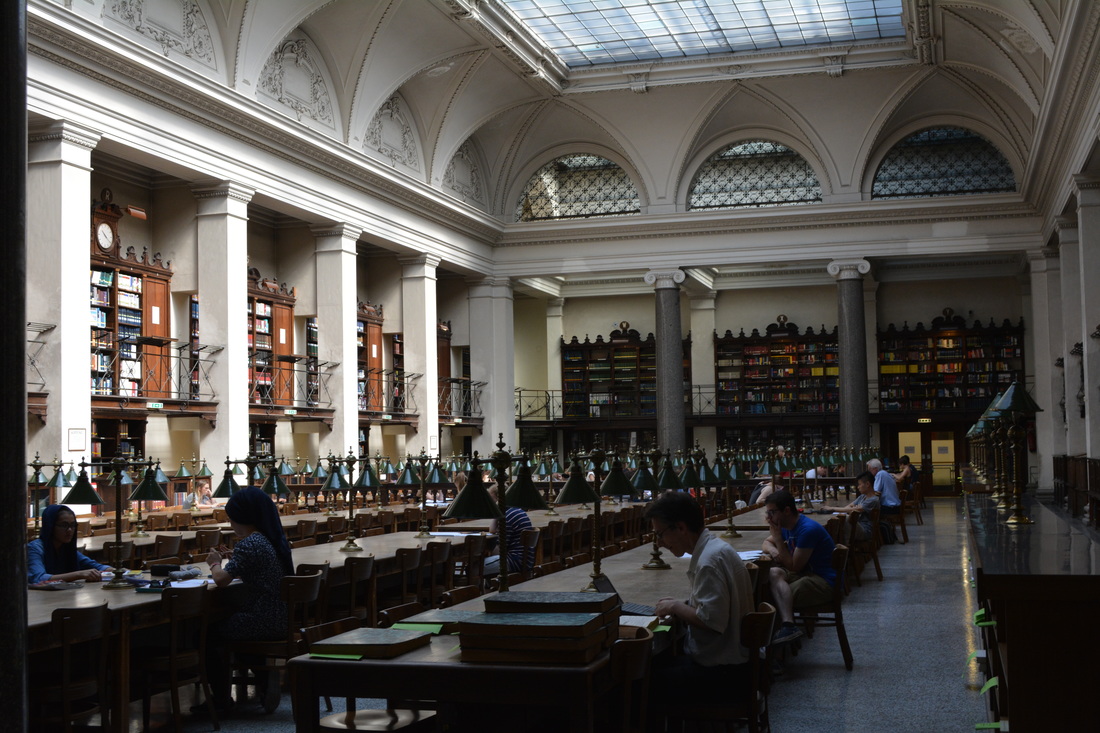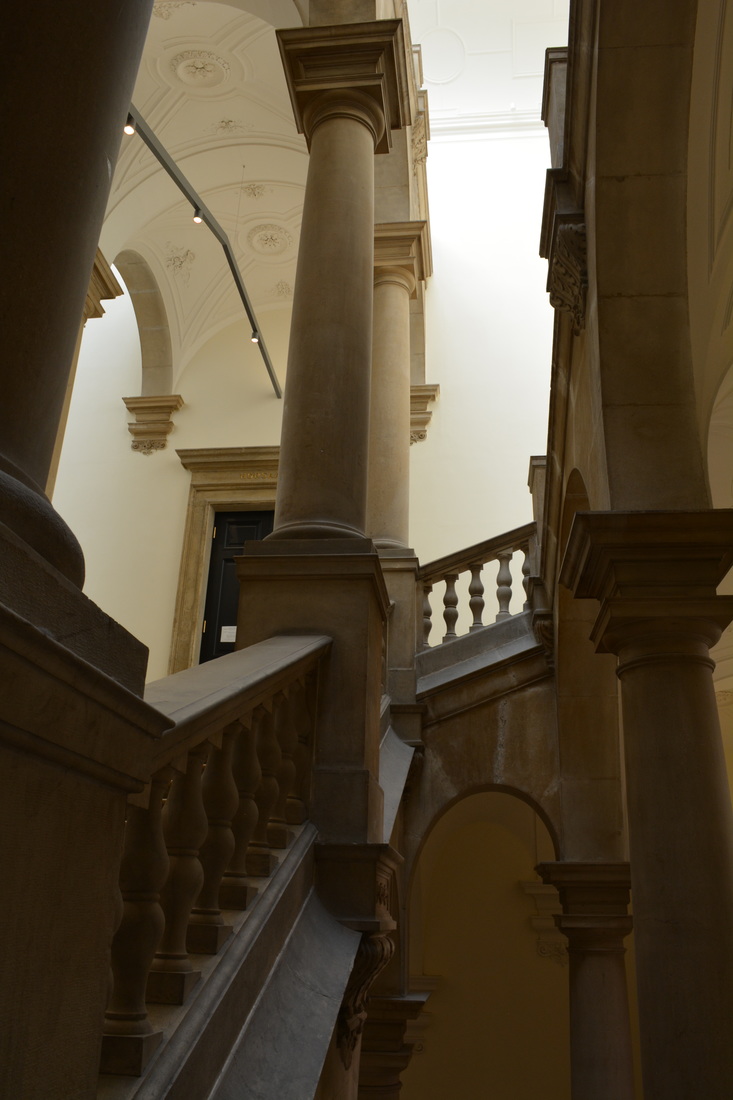what is Austrian literature?
Sometimes it is easy to imagine that Austrian literature is actually the literature of Vienna, to such a degree the atmosphere of this unique city is crucial, especially as far as modernity is concerned. On the other hand, the extent of state territory seems of secondary importance. Also, it is perhaps a peculiar example without straight equivalent in any European country when the national identity is to such a degree irrelevant for the development of literature. If Austria is Vienna, Vienna is the capital of a dynasty that rules many nations, forming a sort of fractal covering all Europe. The Austrianness is what counts the least.
My favourite bibliography
[in progress]
My favourite bibliography
[in progress]
I have readElias Canetti, Die Fackel im Ohr | The Torch in My Ear (1980)
Stefan Zweig, Schachnovelle | The Royal Game (1942) Robert Musil, Der Mann ohne Eigenschaften (1930) Georg Trakl, Gedichte [1909-1914] |
Vertical Divider
|
I have written... nothing ...
|
a winter travel to the perfect city
January 2023.
It is my first travel after my illness. Vienna is relaxing, elegant, accessible. In those years gone by when I still believed in better future, I tried several times to find a job here, without having it entirely present in my mind how good that idea actually was.
The journey revived my wanderlust. Curiously, at the popular Sisi exposition in Hofburg I discover how much I could have in common with an empress. The wanderlust, at least. That is a ridiculous thing to say, of course. Nonetheless, it is so easy to make Vienna one's own. It is an anecdote from my previous stay, on the occasion of the big congress of the International Comparative Literature Association, that comes to my mind. For a moment free from conference sessions, I entered the Kunsthistorische Museum and its splendorous coffee shop to drink a cup of coffee. I saw there a professor from Poland. "Hello, Professor," said I. "Do you enjoy Vienna?" With an expression of absolute bliss, she made herself more comfortable like a hen in her nest and said: "Och, to jest takie moje miejsce" ("It is such a cherished place of mine")... As if the place meant to her a lot, as if she had an intimate link with it. Nonetheless, I knew that most probably it was her first time there, and she didn't even speak a word of German. But the place was hers, instantaneously occupied, subdued and tame.
Musing on my own bashful moods, I often wish I had just a little bit of my psychopath colleague. Rather mediocre as her achievements were, I never saw her nurturing the slightest doubt about anything hers. She just considered herself the greatest comparativist, not only in Poland, but in whole Europe (she even tried to get herself elected as the Association's chairwoman). I wish I could speak of Chinese literature just like her, offhanded and appearing clever.
But unfortunately, I just can't, no matter what, I cannot have her pride and self-sufficiency. I wish I had. I don't. I'm humble. To such a degree that quite a different encounter happened to me at the end of the day. Tired of museums, barely moving my legs, I was loitering toward the bus stop on Sudtiroler Platz to catch my Flixbus back home. A homeless man approached me, but not to ask if I could buy him anything to eat. To my intense horror, he asked me quite a different question: "Kaj tu essen?". As if I was a person to advise him about a good bin nearby, full of restaurant leftovers. Well, just a nomad who recognised a nomad.
Yet the translingual dimension of the sentence captivates me. Kaj tu essen. As if the Austro-Hungarian empire, somewhere between Silesia, Galicia, and German-speaking lands, was still a reality. And its hungers could be easily quenched with Kaiser's white breads, those small, round pieces with five-fold solar pattern that we still call kajzerki.
It is my first travel after my illness. Vienna is relaxing, elegant, accessible. In those years gone by when I still believed in better future, I tried several times to find a job here, without having it entirely present in my mind how good that idea actually was.
The journey revived my wanderlust. Curiously, at the popular Sisi exposition in Hofburg I discover how much I could have in common with an empress. The wanderlust, at least. That is a ridiculous thing to say, of course. Nonetheless, it is so easy to make Vienna one's own. It is an anecdote from my previous stay, on the occasion of the big congress of the International Comparative Literature Association, that comes to my mind. For a moment free from conference sessions, I entered the Kunsthistorische Museum and its splendorous coffee shop to drink a cup of coffee. I saw there a professor from Poland. "Hello, Professor," said I. "Do you enjoy Vienna?" With an expression of absolute bliss, she made herself more comfortable like a hen in her nest and said: "Och, to jest takie moje miejsce" ("It is such a cherished place of mine")... As if the place meant to her a lot, as if she had an intimate link with it. Nonetheless, I knew that most probably it was her first time there, and she didn't even speak a word of German. But the place was hers, instantaneously occupied, subdued and tame.
Musing on my own bashful moods, I often wish I had just a little bit of my psychopath colleague. Rather mediocre as her achievements were, I never saw her nurturing the slightest doubt about anything hers. She just considered herself the greatest comparativist, not only in Poland, but in whole Europe (she even tried to get herself elected as the Association's chairwoman). I wish I could speak of Chinese literature just like her, offhanded and appearing clever.
But unfortunately, I just can't, no matter what, I cannot have her pride and self-sufficiency. I wish I had. I don't. I'm humble. To such a degree that quite a different encounter happened to me at the end of the day. Tired of museums, barely moving my legs, I was loitering toward the bus stop on Sudtiroler Platz to catch my Flixbus back home. A homeless man approached me, but not to ask if I could buy him anything to eat. To my intense horror, he asked me quite a different question: "Kaj tu essen?". As if I was a person to advise him about a good bin nearby, full of restaurant leftovers. Well, just a nomad who recognised a nomad.
Yet the translingual dimension of the sentence captivates me. Kaj tu essen. As if the Austro-Hungarian empire, somewhere between Silesia, Galicia, and German-speaking lands, was still a reality. And its hungers could be easily quenched with Kaiser's white breads, those small, round pieces with five-fold solar pattern that we still call kajzerki.
my Austrian readings
clinamen
Rarely is it so clear that literature helps finding ways out of vital mazes than in the case of Zweig's Schachnovelle. It is a happy coincidence that I found this text right now, on the little bookstand in the Maison Internationale de la Recherche where I live, precisely at the dangerous bend of History, when Poland is about to leave the European Union after the sentence of the Constitutional Tribunal that has announced, against all juridical logic, that European laws are null and invalid in Poland. It is a blow for me, for I feel much more European than Polish, and the perspective of losing my European citizenship makes me feel as if I were in a direct danger of complete dehumanization. My reaction might be regarded as exaggerated, but how many times I saw other people, Byelorussians, Ukrainians, humiliated at the borders, sometimes denied the right of entry for no clear reason whatsoever. It makes the palms of my hands sweaty only to think that soon I may share their misery.
This is why it gives me a sort of Aurelian comfort to know that all those misfortunes had happened before to others, better than me. Such as Stefan Zweig, a fine scion of Viennese elite, after the Anschluss of Austria. The events of his Schachnovelle are situated on the board of a ship, on the route to a South American port, and the text was written shortly before the author's suicide. Somehow, it has a passport with the stamp "ENEMY ALIEN" in the background. Myself, I have been thinking that, if History comes to interfere with my life, I could go to Australia, to New Zealand, where my lost European citizenship would have no such an importance anyway.
But there is more than just drifting away from Europe in this novel, of course. There is a very significant lesson, to be found on the very last page. The Viennese hero, M. B..., confronts a sort of Yugoslavian rain man, Mirko Czentovic, current world master in chess. M. B..., on the other hand, has learned chess in a solitary cell of a Nazi prison, when he managed to steal from his oppressors a little almanac containing all the legendary chess parties of great masters. M. B... used to play against himself, in a sort of schizophrenic dissociation of his personality, that led him to complete madness. It is the first time he plays against an adversary other than himself. And in the end, in some sort of collapse into his inner dimension, he discovers to have played a parallel match, at a minimal difference in relation to the situation on the material chessboard. This is how he fails to vanquish Czentovic, but he obtains a far greater victory: that of abandoning the game, the rivalry, the war. A minimal error, the difference between one case and the neighbouring one is enough to achieve it. And his victory is the freedom of that ship sailing away from Europe, away from madness, away from a surreal, never ending party of chess.
This is the lesson I get for myself from this reading. I do not play against Poland and his tiny tyrant any longer. I have introduced that minimal aberrance, clinamen. I put my pion on the wrong case, just one case aside. But with every move, the clinamen grows. The initial minimal deviation starts to make greater and greater difference. A difference between life and game, sanity and madness, the chessboard and the world.
Stefan Zweig, Schachnovelle, Buenos Aires, 1942.
Neuville-sur-Oise, 22.07.2021.
This is why it gives me a sort of Aurelian comfort to know that all those misfortunes had happened before to others, better than me. Such as Stefan Zweig, a fine scion of Viennese elite, after the Anschluss of Austria. The events of his Schachnovelle are situated on the board of a ship, on the route to a South American port, and the text was written shortly before the author's suicide. Somehow, it has a passport with the stamp "ENEMY ALIEN" in the background. Myself, I have been thinking that, if History comes to interfere with my life, I could go to Australia, to New Zealand, where my lost European citizenship would have no such an importance anyway.
But there is more than just drifting away from Europe in this novel, of course. There is a very significant lesson, to be found on the very last page. The Viennese hero, M. B..., confronts a sort of Yugoslavian rain man, Mirko Czentovic, current world master in chess. M. B..., on the other hand, has learned chess in a solitary cell of a Nazi prison, when he managed to steal from his oppressors a little almanac containing all the legendary chess parties of great masters. M. B... used to play against himself, in a sort of schizophrenic dissociation of his personality, that led him to complete madness. It is the first time he plays against an adversary other than himself. And in the end, in some sort of collapse into his inner dimension, he discovers to have played a parallel match, at a minimal difference in relation to the situation on the material chessboard. This is how he fails to vanquish Czentovic, but he obtains a far greater victory: that of abandoning the game, the rivalry, the war. A minimal error, the difference between one case and the neighbouring one is enough to achieve it. And his victory is the freedom of that ship sailing away from Europe, away from madness, away from a surreal, never ending party of chess.
This is the lesson I get for myself from this reading. I do not play against Poland and his tiny tyrant any longer. I have introduced that minimal aberrance, clinamen. I put my pion on the wrong case, just one case aside. But with every move, the clinamen grows. The initial minimal deviation starts to make greater and greater difference. A difference between life and game, sanity and madness, the chessboard and the world.
Stefan Zweig, Schachnovelle, Buenos Aires, 1942.
Neuville-sur-Oise, 22.07.2021.
illness & truth
(corn on the cob)
Die Sonnenblumen leuchten am Zaun,
Still sitzen Kranke im Sonnenschein.
Georg Trakl, "Im Herbst", Gedichte, Leipzig: Kurt Wolff Verlag, 1913.
The first impression at opening Trakl's poetry volume may be that of conventionality, especially if, as it happened to me, this first contact is mediated through translation, that tends to deepen the sensation of something derived and unoriginal. Similar kind of late symbolism is something one can see in infinite variations all across Europe, from Portugal to Poland. Flowers and hospitals, snow and sunsets, faces and doppelgangers. But it makes a sort of difference to know that in this particular case, the hallucinations involving faces, as well as the presence of a mysterious figure with a knife, were mentioned in the medical documentation from the military hospital in Kraków where Trakl was interned in 1914, just weeks before his death by cocaine intoxication on 3rd November. Does the medical documentation provide a guarantee of authenticity to poetry?
Wie traurig dieser Abend. I try to remember wie traurig it was when I was myself mentally ill in my youth, but the recollection seems so distant, so unreal. And probably it couldn't be compared with a real madness, the deranged mind of the poet. How do I read Trakl today, as a testimony of a state of mind that I could have lived myself, or rather as an event in literary history, comparable with other poems I could have read over and over again? In my youth, symbolism was my beloved school. Perhaps at the time, I could read it as a testimony, in the mirror of my own suffering, of the vague idea of suicide in my own mind. Now, I read it as a part of literary history. Over the Polish translation that was offered to me, probably in reference to my own sickness, so many years ago, I look up to the German original, and admire the way how every word occupies its place in the row, like a grain of corn on the cob.
Georg Trakl, Wiersze z rękopisów, trans. Andrzej Lam, Warszawa: PWN, 2000.
Georg Trakl, Gedichte, Leipzig: Kurt Wolff Verlag, 1913; (online).
Kraków, 5.09.2021.
Wie traurig dieser Abend. I try to remember wie traurig it was when I was myself mentally ill in my youth, but the recollection seems so distant, so unreal. And probably it couldn't be compared with a real madness, the deranged mind of the poet. How do I read Trakl today, as a testimony of a state of mind that I could have lived myself, or rather as an event in literary history, comparable with other poems I could have read over and over again? In my youth, symbolism was my beloved school. Perhaps at the time, I could read it as a testimony, in the mirror of my own suffering, of the vague idea of suicide in my own mind. Now, I read it as a part of literary history. Over the Polish translation that was offered to me, probably in reference to my own sickness, so many years ago, I look up to the German original, and admire the way how every word occupies its place in the row, like a grain of corn on the cob.
Georg Trakl, Wiersze z rękopisów, trans. Andrzej Lam, Warszawa: PWN, 2000.
Georg Trakl, Gedichte, Leipzig: Kurt Wolff Verlag, 1913; (online).
Kraków, 5.09.2021.






